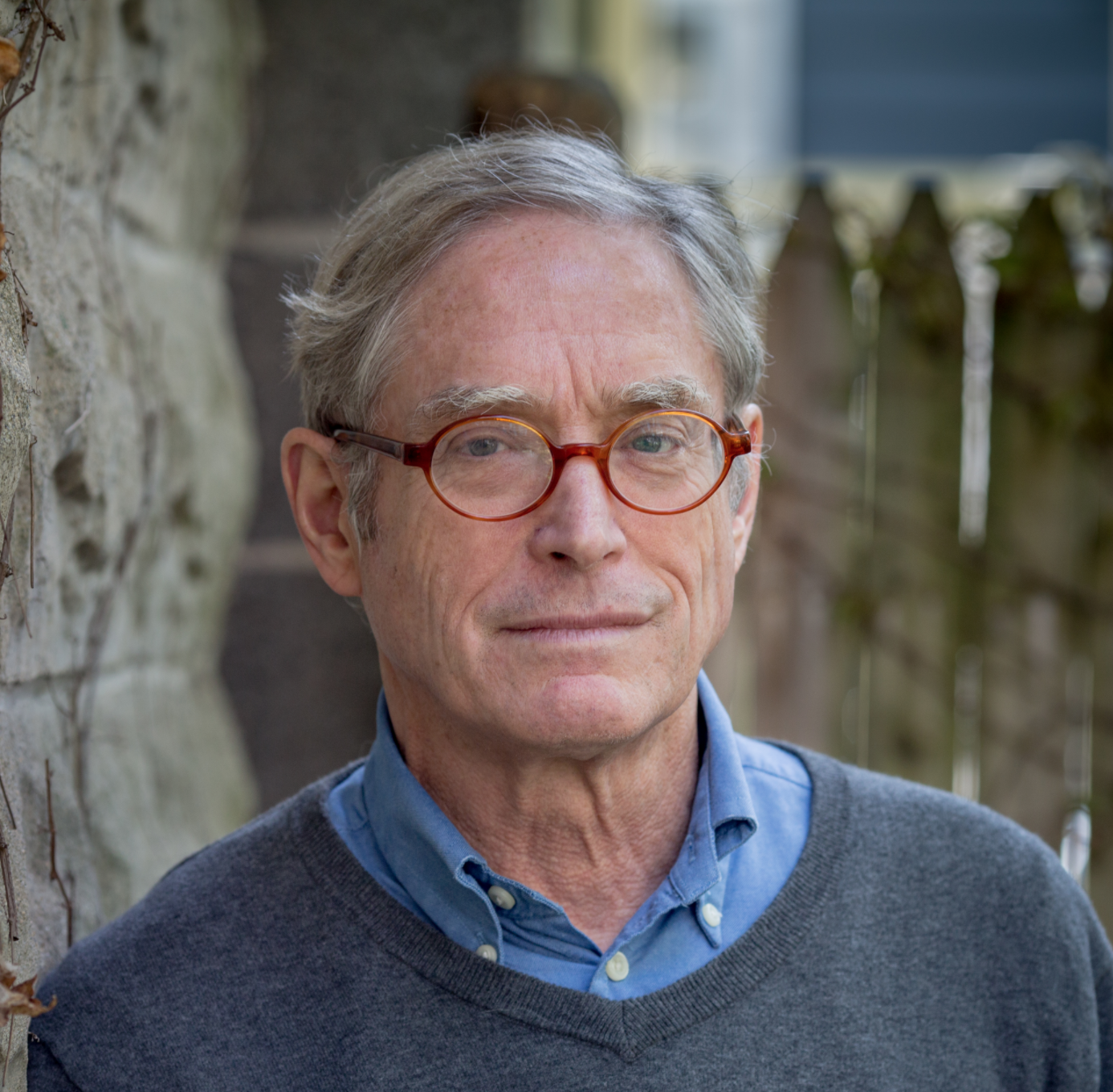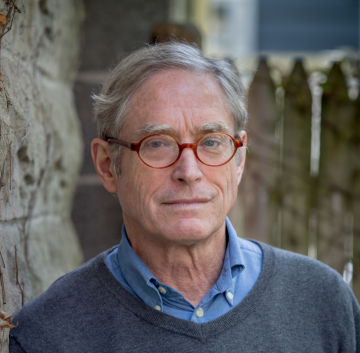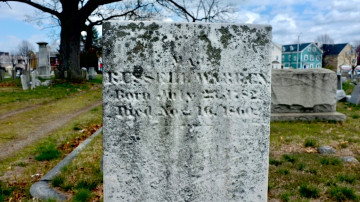Sunday, May 14, 2023
“You saved me, you should remember me.
GET THE LATEST BREAKING NEWS HERE — SIGN UP FOR GOLOCAL FREE DAILY EBLAST
“The spring of the year; young men buying tickets for the ferryboats.
Laughter, because the air is full of apple blossoms.
“When I woke up, I realized I was capable of the same feeling….’’
— “Vita Nova,’’ by Louise Gluck (born 1943), Nobel Prize-winning poet. She splits her time among Cambridge, Mass., Montpelier, Vt., and Berkeley, Calif.
“If you are truly serious about preparing your child for the future, don’t teach him to subtract – teach him to deduct.’’
— Fran Lebowitz (born 1950), American writer and speaker
“The mind that is not baffled is not employed.’’
— Wendell Berry (born 1934), American novelist, poet, essayist, environmental activist and farmer
xxx
I hear kids’ voices muffled by the soughing of the wind through the new leaves of the trees.
xxx
We go to funerals to express our liking or loving of the deceased; to support grieving family and friends; to make public appearances; out of curiosity, and/or to hear entertaining anecdotes about the deceased. Of course, some say, when it’s suggested that they go to a funeral: “Why bother? The dead person won’t know I’m there.’’ True (I think) but maybe the stay away is mostly animated by not wanting to be reminded of death in general. (Maybe that’s why the famed writer E.B. White refused to attend his own wife’s funeral.)
Going to a funeral is a way to mark the passage of time and so to encourage us to pay more attention to our own lives, especially their transience. And there are often surprises. Sometimes one expects lots of funny anecdotes about a “larger than life” character, as I did at the funerals of the sometimes outrageous Bruce Sundlun, the former Rhode Island governor, and my debonair godfather, a Mainer named Geoff Stanwood. But their funerals were entirely somber. At other times, seemingly quiet, timid, gray people are revealed to have had colorful and/or exciting lives. How little we knew them.
Sometimes ex-spouses of the deceased will show up to make surprisingly friendly remarks; other times some embarrassingly negative (or at least nuanced) ones.
And every once in a while, a funeral can mark, in a rough way, the end of an era. Thus it was last week around here at the funeral to mark the death at 89 of John Monaghan, a former senior editor at the once-impressive Providence Journal Co., where Mr. Monaghan was most noted as the managing editor of the company’s now long-gone Evening Bulletin.
Sardonic, droll and demanding but basically kindly, he was an old-fashioned newspaperman of the type I first encountered working for papers in Boston; indeed, he sounded like them, most of whom in my time were Irish-Americans. He presided over work that could be fun and exciting as well as painful, with unforgiving deadlines and angry or fearful or conniving protagonists and sources. And sometimes tedious: A reporter might have to trudge through swamps and over mountains of documents while being misdirected and frequently lied to. (See the movie Spotlight.)
Being a newspaper person was a daily education in the workings of the world, dark and bright.
Now, of course, newspapers are dying all over the place, as their ads and their journalistic content are swiped by social media and Internet search engines and their remaining assets are stripped away by billionaire private-equity and hedge-fund owners. Mr. Monaghan retired before the worst of it. But perhaps as a Brown classics major he was particularly suited to taking it all philosophically – the long view.
We notice that attendance at funerals and memorial services for the very old, unless they’re very well known, tends to be sparse since so many contemporaries have departed themselves. And we’ve been surprised from time to time by the failure of an officiating member of the clergy to do even minimal research about those whom they’re officially consigning to the next world, or whatever it is.
We’ve known a few older people who, with their contemporaries dying at an accelerating rate, finally decide not to attend any more funerals.
For some, there’s the option of attending a Catholic wake the night before in lieu of the funeral. But that can be awkward because you’ll probably have to explain your connection to the departed to the decedent’s family and close friends who may have no idea who you are. You aren’t just dropping by for the refreshments, are you?
When I worked in Boston and New York, wakes with open caskets were more common than now. (Mr. Monaghan’s funeral, which I went to last Thursday, was not open casket. The priest gave a very good homily, by the way.)
A wake I remember very vividly was that for Tom Mitchell. He was a middle-aged colleague of mine, an amiable ex-Marine and a news editor at The Wall Street Journal. He was also a “functioning alcoholic’’. (Heavy drinking near, or even in, your workplace was more tolerated then – the proverbial bottle in the drawer.)
Back a half-century ago, Fridays were quiet in the WSJ home offices, in Lower Manhattan, and I sometimes worked then as an editor; there was no weekend edition in those days.
Anyway, on one Friday, Tom and I seemed to be the only editors around, and so we chatted at length about this and that. As we did, I noticed that his face had turned yellow: His liver was giving out. He died that weekend, and I went to his classic Irish wake in Queens a couple of days after that. It recalled something out of the works of James Joyce and Edwin O’Connor.
Parking vs. Housing
A barrier to building more housing, “affordable” and otherwise, is the vast acreage set aside by localities for parking. Some cities and towns mandate high minimums for the number of parking spaces reserved for residents of new condo, apartment and office buildings as a condition for letting construction proceed.
It’s time to eliminate some of these parking requirements, indeed in some places, end all of them. That would encourage more people to do without cars, as many people in such dense downtowns as Boston’s and New York’s already do, and use public transportation, Uber and so on; it could reduce housing costs by opening up much space for putting up dwellings.
Of course, some will say that Americans’ addiction to cars would doom such an effort. But as the banning of cars in some European center cities has shown, keeping out cars can be a local economic and social boon.
Far too much valuable real estate is now taken up by usually empty and idle vehicles, sequestering space that could be used for housing and other needed infrastructure. All too often parking takes precedence over everything else. It’s insane.
We’d do well to read Henry Grabar’s new book, Paved Paradise: How Parking Explains the World and hit these links:
https://www.europeofcities.com/blog/take-a-walk-cities-banning-cars
https://www.vox.com/23712664/parking-lots-urban-planning-cities-housing
xxx
Small private colleges have been going bust in recent years, particularly because of shrinking student applications. Many campuses, resembling well-landscaped semi-villages, seem wonderful for conversion into housing, stores and offices.
Steam From the Charles
Cleaner-energy progress continues in unexpected ways. I just learned this:
Vicinity Energy, based in Boston, is partnering with Germany’s MAN Energy Solutions to collaborate in developing heat-pump systems for steam generation using water from the Charles River. Vicinity says it will install such an industrial-scale complex at its Kendall Station facility (in Cambridge) by 2026.
A heat pump extracts heat from a source, such as the air, geothermal energy in the ground or nearby sources of water or waste heat from a factory. It then amplifies and transfers the heat to where it is needed.
The giant heat-pump complex will generate steam with which to heat many large buildings in Cambridge and Boston, which could save owners and renters a lot of money.
Vicinity says that this will be the largest such facility in the U.S. and “will be powered by renewable electricity to safely and efficiently harvest energy from the Charles River, returning it at a lower temperature.’’ The idea is to renewably harvest thermal energy from rivers and oceans, which are warming because of climate change, thus helping decarbonize localities, especially cities.
How about something like this in Rhode Island? Lots of water available.
xxx
An e-mail acquaintance made these suggestions:
Some political leaders in Rhode Island (and other mostly Blue states) claim to be pushing hard to get residents out of gasoline-powered vehicles and into electric ones. Two ways to help achieve this in the Ocean State might be reimposing a tax on vehicles, like the former local property taxes on vehicles, but only on gas ones, and jacking up the state tax on gasoline. The money could be used for such things as setting up more charging stations for electric vehicles, expanding mass transit and repairing the Ocean State’s infamous roads and bridges.
Sounds reasonable, but at this point close to politically impossible.
By the way, while Rhode Island Gov. Dan McKee touts electric vehicles, neither his personal vehicles nor the state vehicles he uses are electric, GoLocal reports.
But some governors are using all-electric vehicles. For example, there’s Vermont Gov. Phil Scott, a Republican, who only drives such vehicles.
“I hope this sends the message that we walk the talk,” Mr. Scott said last August as he joined the Vermont State Police Executive Protection Unit in picking up a new Ford F-150 Lightning from Twin State Ford in St. Johnsbury.
xxx
WooSox’ Polar Park Stadium – economic reality is going to cost Worcester taxpayers $40-$60 million more
Those romantics who wish that Rhode Island had offered the owners of the Pawtucket Red Sox (now the Worcester Red Sox) whatever it took to keep the team, might want to read this:
https://commonwealthmagazine.org/economy/new-study-calls-woosox-stadium-a-bad-deal-for-worcester/
Well, the well-designed Woosox stadium is up, and so I can only wish it does well as the years roll by.
Streamlining Cape Sprawl
The narrow Bourne and Sagamore bridges, the only ways to drive to and from Cape Cod, were built back in the ‘30s and need to be replaced; they’re approaching being dangerous to drive on. Massachusetts Department of Transportation experts like the idea of replacing them with two sets of twin bridges. From an engineering standpoint, that sounds like a good idea. Let’s hope that adequate federal funds will be made available to do this.
But it’s unlikely that the new bridges would reduce traffic congestion on the Cape itself. Indeed, they could increase it by “smoothing” traffic over the canal, thus sending more drivers onto the skinny peninsula’s Route 6 (one long parking lot on summer weekends) and Route 28, some of whose traffic goes to ferry service to Martha’s Vineyard and Nantucket. (We generally stay away from the Cape from Memorial Day to after Labor Day, though we have a few relatives there.)
What would help save what’s left of the fragile, overbuilt, now mostly suburban Cape Cod is much more passenger rail service as an alternative to driving, including train stations close to the most popular summer places.
Let’s hope that whatever replacement spans go up are beautiful, befitting the spectacular setting of the world’s widest sea-level canal, with its dramatic bluffs.
What Will It Take?
The dystopia created by the National Rifle Association, the lobbying arm of America’s blood-soaked gun industry, and its major affiliate, the GOP-QAnon Party, won’t last forever, though we can expect more carnage soon, especially in Red States, where the sick gun cult prospers the most.
An increasing majority of Americans favor such regulations as a ban on assault weapons (which worked well when one was in effect in 1994-2004; the Republicans, of course, let it expire) and a 30-day waiting period to buy firearms.
What will be the straw that breaks the NRA/GOP-QAnon alliance’s back? Maybe 100 kids mowed down by a neo-Nazi Trumpster with an AR-15?
If and when reason and morality finally prevail, and serious gun control happens, there would have to be huge gun-buyback programs to reduce the number of the murderous and suicidal weapons in circulation. Australia offers an example:
xxx
We tend to only blame political crooks/psychopaths such as Trump and New York Congressman George Santos for their corruption. But those who vote them into office, despite mountains of easily available evidence, are in some ways as bad, as are those who elect bad politicians by not voting. Call them passively corrupt.
I suspect that some of Trump’s male cultists admire him for getting away with the sort of nasty stuff, such as sexual assaults, they’d like to do.
Meanwhile, note that the judge in Trump’s civil trial for sexual assault and defamation against E. Jean Carroll, which she won, felt compelled to warn the jurors:
“If you’re one who elects to speak to others and to identify yourselves to others, I direct you not to identify anyone else who sat on this jury. Each of you owes that to the other, whatever you decided for yourself.”
The judge suggested they might not want to publicly identify themselves —“not now and not for a long time’’ — presumably for fear of violence from Trump cultists – violence pumped up by their leader.
This is what we’ve come to….
xxx
CNN, desperate for high ratings, despicably or stupidly let the GOP/QAnon pack the audience with cultists at Trump’s “town hall’’ lie orgy last Wednesday in New Hampshire. John Adams famously said, “facts are stubborn things,’’ but so are demagogues’ lies and those who consume them.
“I want my work to become part of our visual history, to enter our collective memory and our collective conscience. I hope it will serve to remind us that history’s deepest tragedies concern not the great protagonists who set events in motion but the countless ordinary people who are caught up in those events and torn apart by their remorseless fury. I have been a witness, and these pictures are my testimony. The events I have recorded should not be forgotten and must not be repeated.”
— James Nachtwey

Robert Whitcomb is a veteran editor and writer. Among his jobs, he has served as the finance editor of the International Herald Tribune, in Paris; as a vice president and the editorial-page editor of The Providence Journal; as an editor and writer in New York for The Wall Street Journal, and as a writer for the Boston Herald Traveler (RIP). He has written newspaper and magazine essays and news stories for many years on a very wide range of topics for numerous publications, has edited several books and movie scripts and is the co-author of among other things, Cape Wind.






